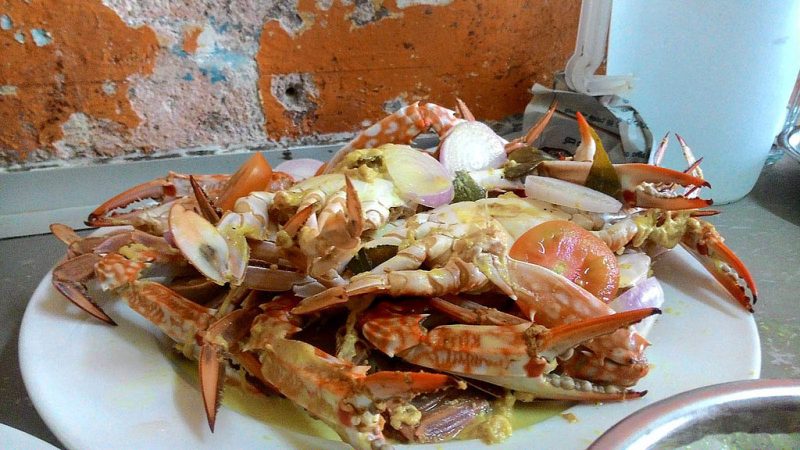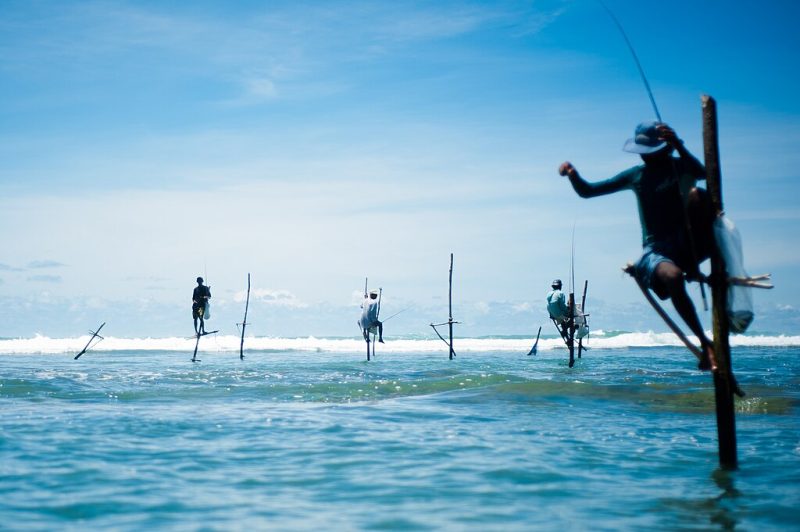As the first rays of sunlight illuminate the coastline, the fisherfolk of Sri Lanka become a symbol of the country’s cultural identity. Nets are cast, stilts are scaled, and the bounty of the Indian Ocean is reeled in. Discover the beauty and heritage of Sri Lanka’s fishing legacy, from cuisine to communities.
The Communities & Livelihoods
At its heart, fishing has always been communal. Coastal communities in Sri Lanka have been tied to the ocean for generations, and have endured wars and natural disasters to keep the practice alive. Today, over 2 million people depend on fishing in Sri Lanka, and the contribution of fisherfolk to the economy is beyond significant.
A Piece of Heritage
Methods of fishing, like beach seining, often involve large groups of people casting nets into shallow waters, giving birth to Ambaa folk songs and a rich culture rooted in the Northern coastal communities. In the south, stilt fishing is a unique art form passed down through families, involving solitary fishermen perched atop wooden crossbars, waiting patiently for a pole and line catch. Further up, along the Eastern coast, fisherfolk tune in to the fabled, melodic song of “singing fish,” navigating their wooden boats towards the aquatic phenomenon.
A Seafood Diet

Thanks to the enormous coastline, fish and seafood are a primary source of protein in the Sri Lankan diet. Southern homes have perfected tangy, peppery fish curries, while Northern communities are famed for their spiced crab curries. Further inland, the abundance of river fish allows central regions to enjoy a similar diet, best enjoyed with a side of fresh vegetables and hearty rice.
For an authentic, “sea to table” experience, tour operators like Walkers Tours offer visitors the chance to help fishermen reel in their catch, and watch as expert chefs transform the hard-earned seafood into a delectable local meal.
Overcoming Challenges
Despite its significance, the fishing industry faces challenges like overfishing, climate change, and marine pollution. Sustainable practices, technological advancements, and government policies are crucial to safeguarding this vital sector for future generations. Sri Lanka’s fishing industry remains a lifeline for its people and a testament to the nation’s enduring maritime legacy.











